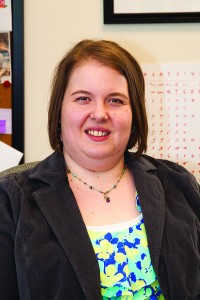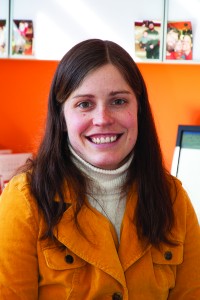In 2008, for the first time ever, women earned more than 50 percent of awarded PhDs. Despite this shift in the majority, women are still nationally underrepresented as tenured faculty in higher education. According to a 2006 American Association of University Professors (AAUP) report, 31.2 percent of all tenured faculty members are women. This figure is actually slightly higher than the situation at Houghton, where 26 percent of all tenured professors are women.

Though there are surely manifold causes feeding into this discrepancy between qualified female PhDs and tenured women faculty with respect to both the nation and Houghton specifically, many point to the complications of family formation as a key-contributing factor. For example, in 2011, a writer for the Chronicle of Higher Education stated that, “Most women [professors], it seems, cannot have it all—tenure and a family—while most men can.” Similarly, Slate magazine ran an article describing the “baby penalty” levied against women in academia that reads, “family formation negatively affects women’s, but not men’s, academic careers. For men, having children is a career advantage; for women, it is a career killer.”
Though these and similar statements undoubtedly highlight issues for women academics across the United States, both seem to miss the mark when it comes to addressing the experience of mothers teaching at Houghton.
Dr. Sarah Derck of the Bible and Religion Department interviewed for her position at Houghton while pregnant. Though fully aware of relevant, federal anti-discriminatory laws, she says that she did feel nervous that her first child would somehow complicate getting a job. However, from day one at Houghton, she said, “every single conversation has been celebrating with me and [my husband,] Josh, [saying] let’s see what we can do to make this work.” Currently in the early stages of a tenure-track position, Derck said that this level of support has endured, bearing “evidence of a real valuing of family on Houghton’s campus”
Also pursuing a tenure track position, Dr. Rebekah Yates of Math and Computer Science is equally

quick to recognize the ways in which Houghton—and specifically her department—has proved supportive in being “aware of what happens when you have a child.” As Yates commented, the hyper-awareness on the second-floor of Paine may have something to do with the five children born to Math/Computer Science faculty within the last two years. Identifying with women who may feel derided for deciding to have children mid-career, Yates did recognize what she called an “implicit double standard” that treats male and female parenting in academics differently. However, she was also quick to comment that she believes this trend stretches beyond academia to “pervade much of our culture.”
Dr. Kristin Camenga, also of Math and Computer Science, echoed her two colleagues quoted above in expressing that she has felt “affirmed in [her] role as a mother here.” When asked to identify specific ways that Houghton has supported her as a teaching mother, Camenga highlighted the college’s unusual policy of allowing tenure-track professors to modulate between two-thirds time and full time from semester-to-semester. This systematic “flexibility,” as Camenga described it, made a “significant difference” in allowing her to devote time and energy to young children when necessary.
The feelings of Derck, Yates, and Camenga with respect to feeling confident to pursue both tenure and raise a family are corroborated by the details of recent rank and tenure appointments. Last year the college granted tenure to seven individuals. Five of these faculty members were women, and of these five, four have two or more children. These numbers stand in stark contrast to National Science Foundation (NSF) data that says, “across all disciplines, women with children [are] 38 percent less likely than men with children to achieve tenure.”
Like the rest of the nation, our faculty exhibits a wide gender-gap in tenured faculty. And while it is true that family formation is simply one of many complex factors within this issue, the experience of several women at Houghton suggests that our campus is out-performing others in this specific area. So much so, in fact, that Yates speculated whether or not teaching and parenting at Houghton might actually be harder for young male professors. Perhaps excellent fodder for a later article, this question is surely a good indicator that, though nowhere near perfect, our community is doing something very right.
